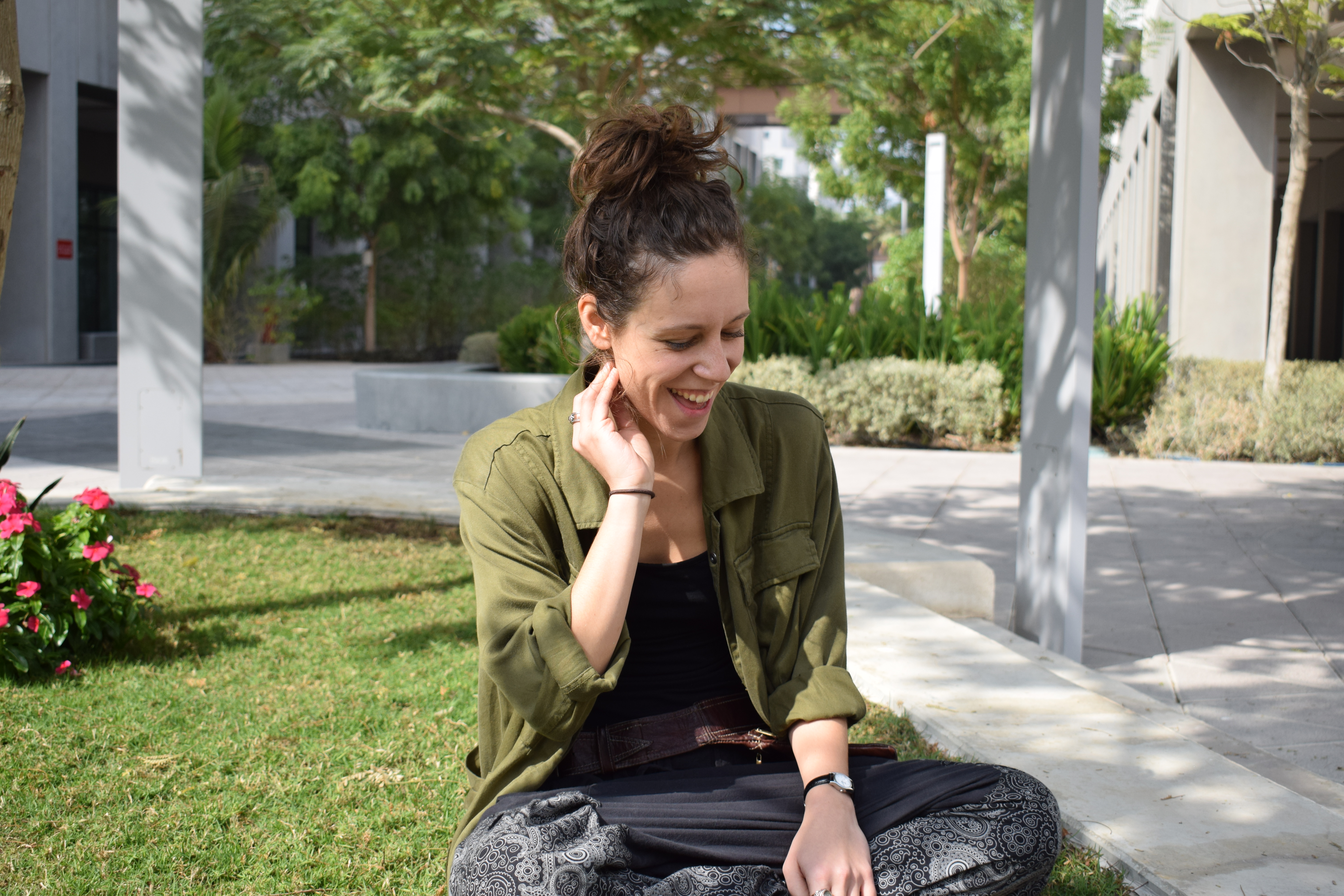Could you share your background story and how dance entered your life?
I started dancing at the age of 5. Being that my parents are musicians, I have always had a connection with music, and it was in fact my passion for music that led me to dance. I did ballet until I was 19. As much as I loved it, ballet was a challenge – stricter and more demanding than contemporary dance. My childhood was different from a normal child as it wholly revolved around dance and academics, I had no time for socializing, no time for myself. Sometimes I wanted to quit, but I always found myself going back to dance. In fact, I had even applied to medical school and was sure that it was the direction I was going to take, but then I got an invite to the Northern School of Contemporary Dance in the UK and my mother convinced me to choose dance over medicine (perhaps the only parent in the world who would). I am so grateful to my parents for the sacrifice and inspiration they have provided me – something I’ll never be able to repay them for.
Having learned Kathak from Aakash, what you think of the dance form?
I love Kathak dance. In fact, I wish I was better at it. It’s all about rhythm and beat. Indian classical dance is interconnected with music and that is what I love. I find it challenging because it has a different attitude but when I see Aakash, it is mesmerizing. There is something other-worldly in the way he dances. We sometimes lose focus in the studio and we just stare at him as he moves. The coordination and the rhythm work their way into your body, producing vibrations. Overall, it’s been a pleasure learning this dance from one of the best Kathak dancers I know.
How did you end up working with Aakash and what is your major interest in the Je Suis project?
Like most pivotal events in my life, it happened by coincidence. I was dancing for the National Dance Company in Turkey, together with Beril and Yasin, and at some point, I had decided that I wanted to pursue a freelance career. Hence, medicine. But the two told me that Aakash was an amazing dancer, having done a workshop two years before. So, I decided to check his videos out on Youtube, and oh my gosh! I just knew it would be an amazing experience. So, I decided to stay. In 2015, I went to Birmingham to do the first R and D, which was about something completely different from #JeSuis and since then, our relationship just evolved and now he is one of my closest friends and I admire him. #JeSuis started to have this different, more political, more social meaning. At the beginning I was like, let’s see, what it’s going to be. Is it gonna be too literal, too victimizing? But the thing that made me really shift was after Edinburg, where we performed it like 16 times in a row…the reaction of the audience, what people said and how they said it, I realized that we were doing something bigger than ourselves. This is not to praise what we are doing. It was really a shock for me to realize this…it gave me a whole new point of view. And my dance changed, everything changed. The audience made it all happen.
To what extent do you think a dancer on a stage can represent a refugee in a crisis? And therefore, can one distinguish between as dance as a means of Artivism versus misrepresentation?
This is a million-dollar question. It is something I still ask myself…It’s a very big question mark for me. But, what I can say is that, as artists (dancers, choreographers, painters, musicians, whatever), we are all affected by the context around us, both spatial and temporal. So we naturally and unconsciously react to it. Whether we like it or not, we cannot avoid dealing with these issues, they become a part of us, and when we create, all these elements channel themselves through our art. Even if you don’t do it with the intent of activism. Actually, the process of Je Suis started off as an introspective journey for me and it led to something bigger than me, bigger than all of us.
It’s important to remember though that if we get out on stage, and solely choose to be ‘political’ and do, as you said Artivism, it limits all the possibilities and ways in which you can express yourself and build a healthy communication with the audience. But if you come from a more humble point of you view, then you’re more open to everything and you can really let all these things (issues affecting us) you’re carrying at the back of your mind come out, whether you’re aware of it or not.
